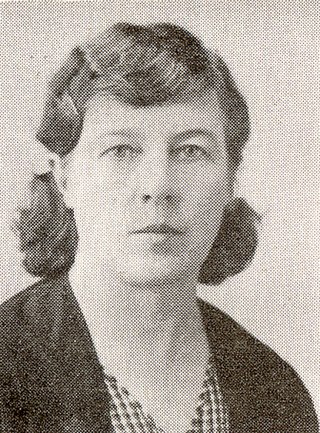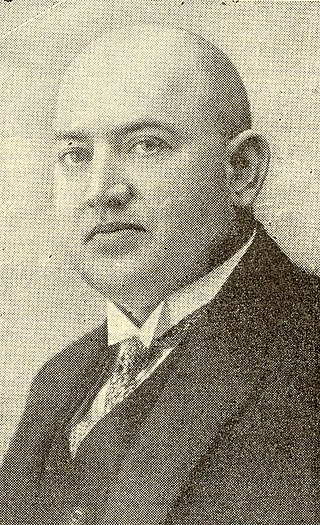Related Research Articles

Teet Kask is an Estonian choreographer.
Jaan Kärner was an Estonian poet and writer. He is known especially for his nature poetry. Many of his poems were set to music by Estonian composers of choral music. Kärner also wrote numerous novels, plays, works of literary criticism, and scientific literature and historical treatises. He translated works from German and Russian, most notably the poems of Heinrich Heine into Estonian in 1934.

Alma Rosalie Ostra-Oinas was an Estonian journalist, writer and politician.
Eduard Georg Aule was an Estonian banker and politician.
Karl August Baars was an Estonian lawyer and politician.
Rudolf Jaska (1891–1974) was an Estonian lawyer and politician.
Mart Kiirats, also known by his pseudonym Mats Mõtslane, was an Estonian writer and politician.
Nikolai Köstner (1889–1959) was an Estonian politician, economist, diplomat and academic. He was a member of the Provisional Assembly of the Autonomous Estonian Governorate (1917–19) and the Constituent Assembly of the newly established Republic of Estonia (1919–20); he also served as a minister in Jaan Raamot's Provincial Government in 1917, in the Second and Third Provisional Governments (1918–19), and in Otto Strandman's first Cabinet and Jaan Tõnisson's first Cabinet. He was also part of the Estonian delegation to the 1919 Paris Peace Conference. In later life, he worked as an academic at the University of Tartu and as an adviser to a number of national banks.
Anna Henriette Leetsmann was an Estonian Bolshevik activist, politician, educator and historian. She was the only woman elected to the Provincial Assembly of the Autonomous Governorate of Estonia in 1917, although she was expelled from the chamber in February 1919 after her Bolshevik activism during the period when Estonian communists, sponsored by the Soviet Union, de facto governed parts of Estonia. By that time, she had already lived in the Soviet Russia since the German occupation of Estonia in February 1918; the rest of her life was spent teaching, studying and working for the party in the USSR. She was detained by the Soviet authorities twice for (allegedly) being a Trotskyist; she died during the second period of incarceration.

Juhan Leeman, also known as Juhan Lehman, Johannes Leeman and Johannes Lehman, was an Estonian politician and educator.
Villem Maasik (1883–1919) was an Estonian lawyer, trade unionist and politician.
Märt Meos, was an Estonian educator and politician.

Victor Neggo was an Estonian educator, politician and diplomat. His surname was also sometimes spelt Neggu or Nego, and he was known by the forenames Aleksander-Viktor, Karl-Aleksander and Viktor Alexander Woldemar, as well as the pseudonym Jursi Sander.

Jüri Parik (1889–1929) was an Estonian lawyer and politician.
Rein Kask is an Estonian politician. He was a member of VIII Riigikogu.
Tõnis Kask was an Estonian film and television director and screenwriter.
Aleksander Kask was an Estonian politician. He was a member of Estonian National Assembly.
References
- ↑ Jaan Toomla, Valitud ja Valitsenud: Eesti parlamentaarsete ja muude esinduskogude ning valitsuste isikkoosseis aastail 1917–1999 (National Library of Estonia, 1999), pp. 23, 257.